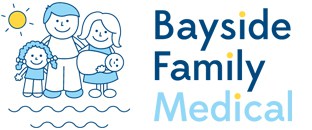Common reasons adolescents may see a GP
Adolescence is a time when we experience rapid physical, cognitive and psychosocial change. Lifelong patterns of behaviour can be established during this phase, such as how we eat, exercise, use substances or engage in sexual activity.
To help guide your teenager towards healthy lifestyle habits, it’s important to ensure they have access to the information and support they need to make informed decisions. That’s where we can help. Here are some examples of common reasons to book your adolescent in with a GP.
Eating Disorders and Body Image Issues
An eating disorder is when food intake, exercise, body weight or shape becomes an unhealthy preoccupation. The condition can be extremely serious and can include behaviours such as restrictive eating, bingeing and excessive exercise. For a full list of warning signs, check out the Eating Disorders Victoria website.
Body image is the way your child thinks or feels about their body. Their perception of their body may be different from their body’s actual appearance. Family environment, the attitude of peers, social media, cultural background, and a range of other factors can influence body image.
The Raising Children website lists the following as signs your child may be focussing too much on their body image:
- Criticising their body – for example, saying they’re ugly
- Continually comparing their body to others
- Not wanting to leave the house because of the way they look
- Not doing activities or trying new things because of the way they feel about their body
- Obsessing about losing weight, or about specific parts of their body
- Spending lots of time looking in the mirror or taking photos and looking for changes or imperfections
- Linking food with feelings of guilt, shame or blame.
If you are concerned that your teenager may have an eating disorder or body image issues, our doctors are here to support you in a multidisciplinary team approach. This may include psychological support via Bluff Road Psychology (which is part of our sister clinic, Bluff Road Medical Centre), dietary and specialist referral.
Contraception and sexual health
During adolescence, many teenagers experiment with sexual behaviour. It’s important that young people understand how to practice safe sex before they do become sexually active.
When we talk about safe sex, we don’t just mean preventing unplanned pregnancy, but also protecting against sexually transmitted infections (STIs). Some STIs can lead to serious complications, which is why it’s so important to be vigilant. Chlamydia, for example, can cause pelvic inflammatory disease (PID), an infection of the uterus and fallopian tubes which may result in infertility.
As your GP, we are here to provide your child with advice about their sexual health. If you suspect your child may be sexually active, please book them in. We’ll provide advice about the various forms of contraceptives available. Examples include implants, intrauterine devices (IUDs), the contraceptive pill, vaginal rings and barrier methods (condoms and diaphragms). We’ll also explain why it’s important to be tested for STIs such as chlamydia around every 12 months.
Adolescent and Child Mental Health
Today, our society is increasingly aware and accepting of the importance of keeping our mental health in check. Our clinic is well-placed to coordinate the care for your adolescent.
Parents or individuals may notice a wide range of concerns that may require further evaluation. These include difficulty with emotional regulation, social anxiety or friendship difficulties, suspected learning disorders, bullying, risk-taking or addictive behaviours, school performance pressures and body image concerns or eating disorders.
Bluff Road Psychology’s dedicated psychology team offers clinical, child and neuropsychology services. Your child may be entitled to a mental health care plan, so please talk to your doctor for further information and about eligibility.
Acne
Acne is a common problem experienced by most adolescents and can make a teenager self-conscious and affect their self-esteem. If untreated it can also lead to permanent scarring of the skin. Fortunately, there are many available treatment options. Whilst acne is a normal part of puberty, it can be overwhelming to navigate the multitude of products available on the market.
Your GP can provide advice around the best treatment options available for your teenager. These may include skin cleansing products, retinoid creams, antibiotics, the contraceptive pill for females or other skin therapies. Cosmetic medical acne treatments such as laser, light treatments and skin peels may also help.
Ready to book?
We are here to help with your family’s medical needs. Please get in touch. Book now.
